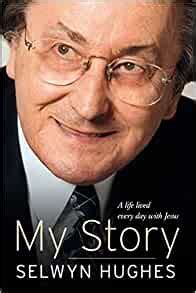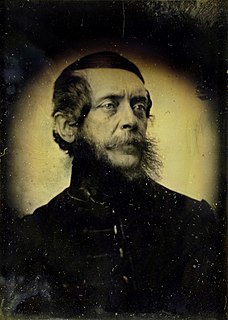A Quote by Saint Augustine
Samson crushed himself and his enemies to death beneath the ruins of a building. He can only be excused on the grounds that the Spirit of the Lord, who wrought miracles through him, had bidden him to do so. But, apart from such men excepted by the command of a just law in general or of God, the very Source of justice, in a special case, any one who kills a human being, himself or another, is guilty of murder.
Related Quotes
All things are God's already; we can give him no right, by consecrating any, that he had not before, only we set it apart to his service - just as a gardener brings his master a basket of apricots, and presents them; his lord thanks him, and perhaps gives him something for his pains, and yet the apricots were as much his lord's before as now.
The law of giving and receiving is fundamental, and relates just as much to God as it does to us. As we go through the door of giving ourselves to God in worship we find that God comes through that same door and gives Himself to us. God's insistence that we worship Him is not really a demand at all but an offer-an offer to share Himself with us. When God asks us to worship Him, He is asking us to fulfill the deepest longing in Himself, which is His passionate desire to give Himself to us. It is what Martin Luther called "the joyful exchange."
For I have shown from the Scriptures, that no one of the sons of Adam is as to everything, and absolutely, called God, or named Lord. But that He is Himself in His own right, beyond all men who ever lived, God, and Lord, and King Eternal, and the Incarnate Word, proclaimed by all the prophets, the apostles, and by the Spirit Himself, may be seen by all who have attained to even a small portion of the truth. Now the Scriptures would not have testified these things of Him, if, like others, He had been a mere man.
Some souls think that the Holy Spirit is very far away, far, far, up above. Actually he is, we might say, the divine Person who is most closely present to the creature. He accompanies him everywhere. He penetrates him with himself. He calls him, he protects him. He makes of him his living temple. He defends him. He helps him. He guards him from all his enemies. He is closer to him than his own soul. All the good a soul accomplishes, it carries out under his inspiration, in his light, by his grace and his help.
For if it is not lawful to take the law into our own hands and slay even a guilty person, whose death no public sentence has warranted. Then certainly he who kills himself is a homicide, and so much the guiltier of his own death as he was more innocent of that offence for which he doomed himself to die.
Suppose, however, that God did give this law to the Jews, and did tell them that whenever a man preached a heresy, or proposed to worship any other God that they should kill him; and suppose that afterward this same God took upon himself flesh, and came to this very chosen people and taught a different religion, and that thereupon the Jews crucified him; I ask you, did he not reap exactly what he had sown? What right would this god have to complain of a crucifixion suffered in accordance with his own command?
A Christian should put away all defense and make no attempt to excuse himself either in his own eyes or before the Lord. Whoever defends himself will have himself for his defense, and he will have no other. But let him come defenseless before the Lord and he will have for his defender no less than God Himself.
What joy is ours that the Lord not only forgives our sins ,but allows the soul to know Him, so soon as she humbles herself. The poorest wretch can humble himself and know God in the Holy Spirit. There is no need of money or posessions in order to know God, only humility. The Lord gives Himself freely, for His mercy's sake alone. I did not know this before but now every day and every hour every minute, I see clearly the mercy of God. The Lord gives peace even in sleep, but without God there is no peace in the soul.
The fact is that men need women more than women need men; and so, aware of this fact, man has sought to keep woman dependent upon him economically as the only method open to him of making himself necessary to her. Since in the beginning woman would not become his willing slave, he has wrought through the centuries a society in which woman must serve him if she is to survive.
The Lord has given the Holy Spirit upon the earth, and in whomsoever He dwells, that one feels paradise within himself. You might say: why hasn't this happened to me? Because you have not given yourself over to the will of God, but you live according to yourself. Look at the one who loves his own will. He never has peace in himself and is always displeased with something. But whoever has given himself over to God's will perfectly has pure prayer. His soul loves the Lord, and everything is acceptable and good to him.
Justice is immortal, eternal, and immutable, like God Himself; and the development of law is only then a progress when it is directed towards those principles which like Him, are eternal; and whenever prejudice or error succeeds in establishing in customary law any doctrine contrary to eternal justice.
Born often under another sky, placed in the middle of an always moving scene, himself driven by the irresistible torrent which draws all about him, the American has no time to tie himself to anything, he grows accustomed only to change, and ends by regarding it as the natural state of man. He feels the need of it, more he loves it; for the instability; instead of meaning disaster to him, seems to give birth only to miracles all about him.








































